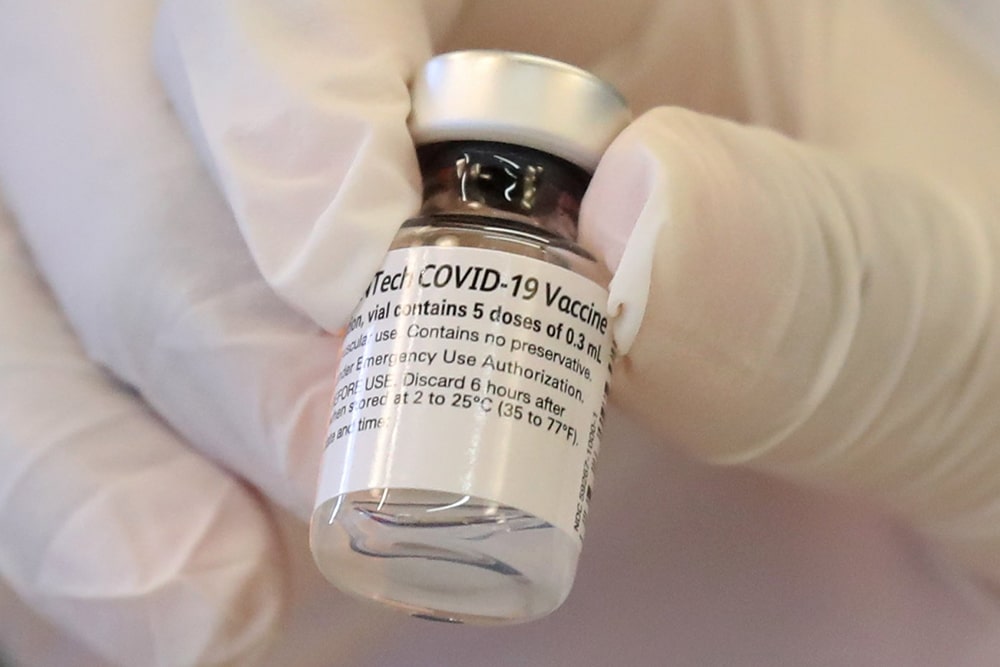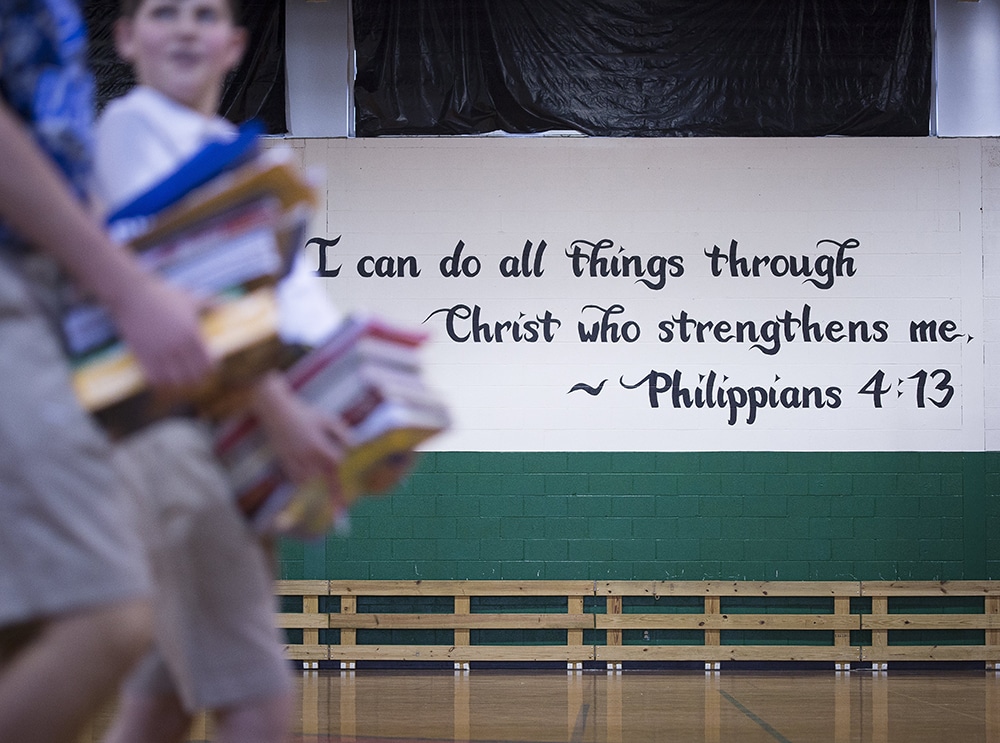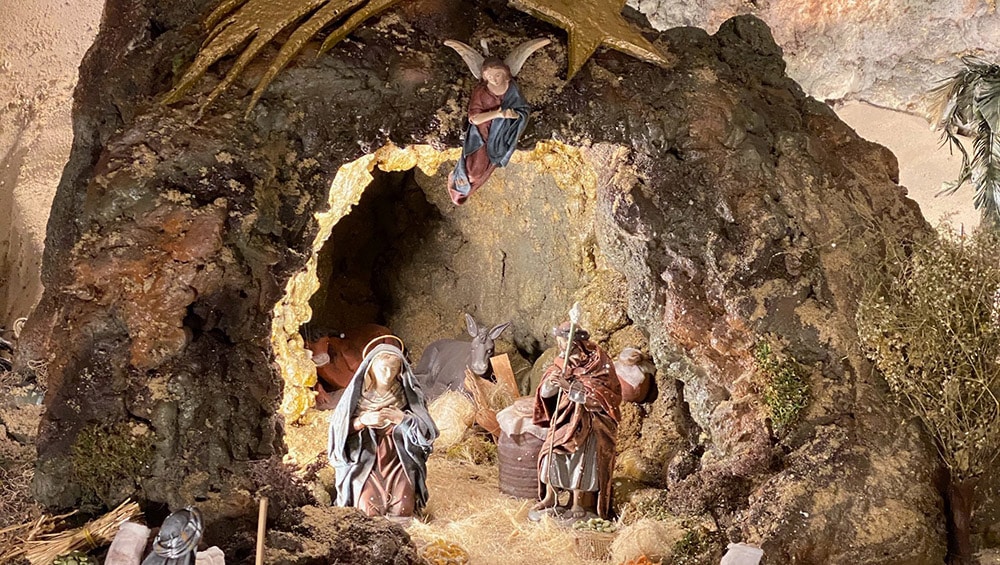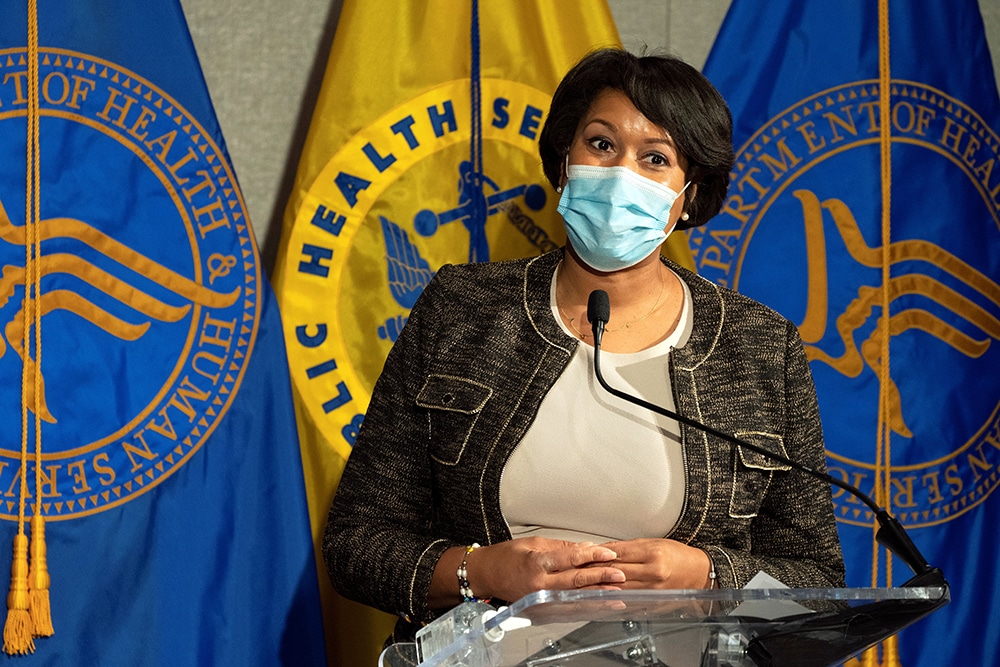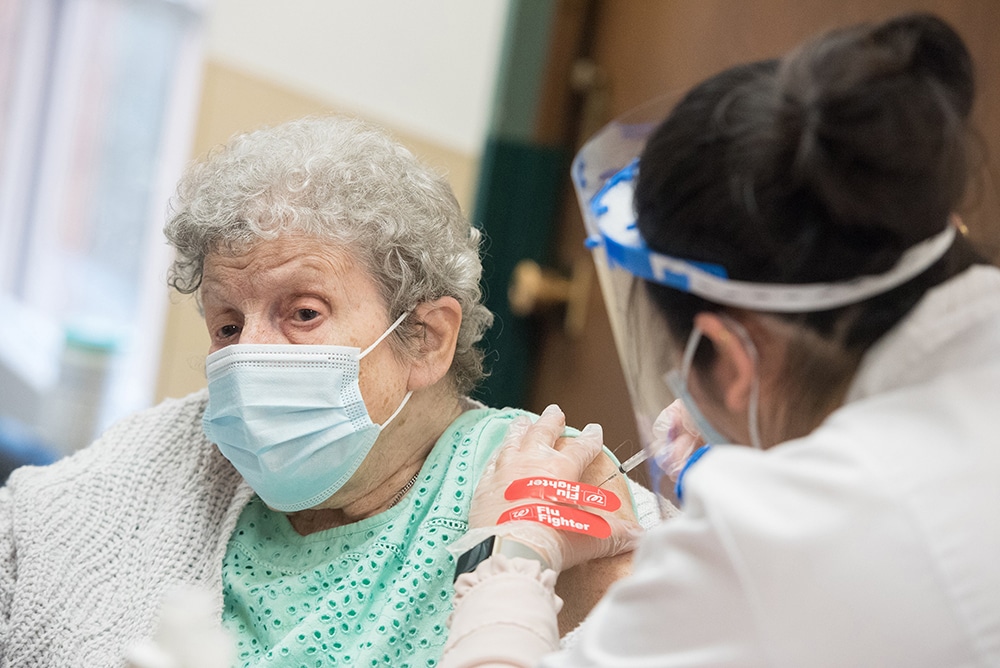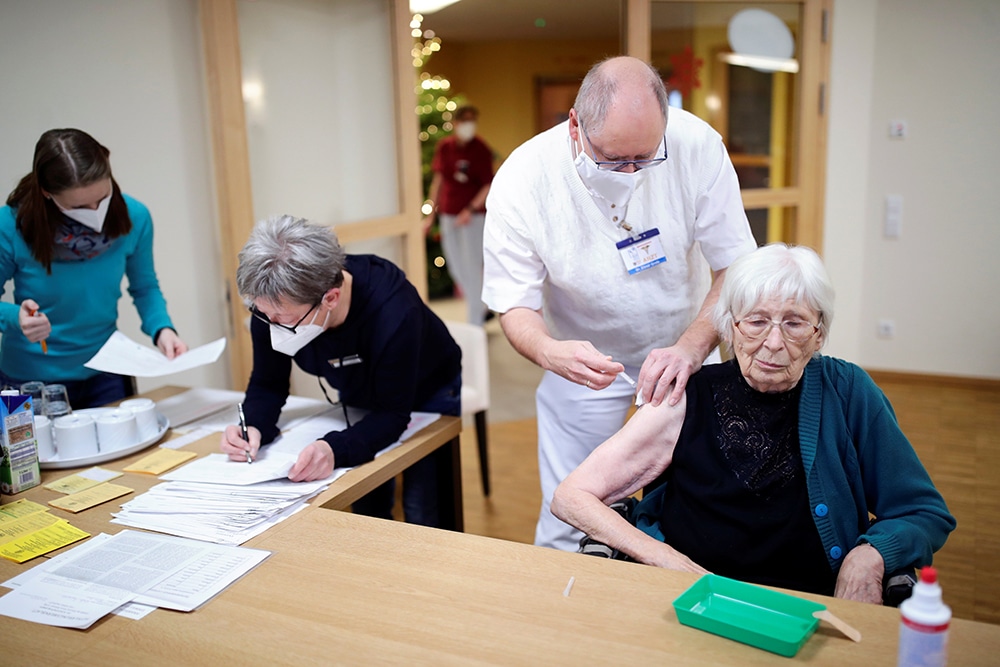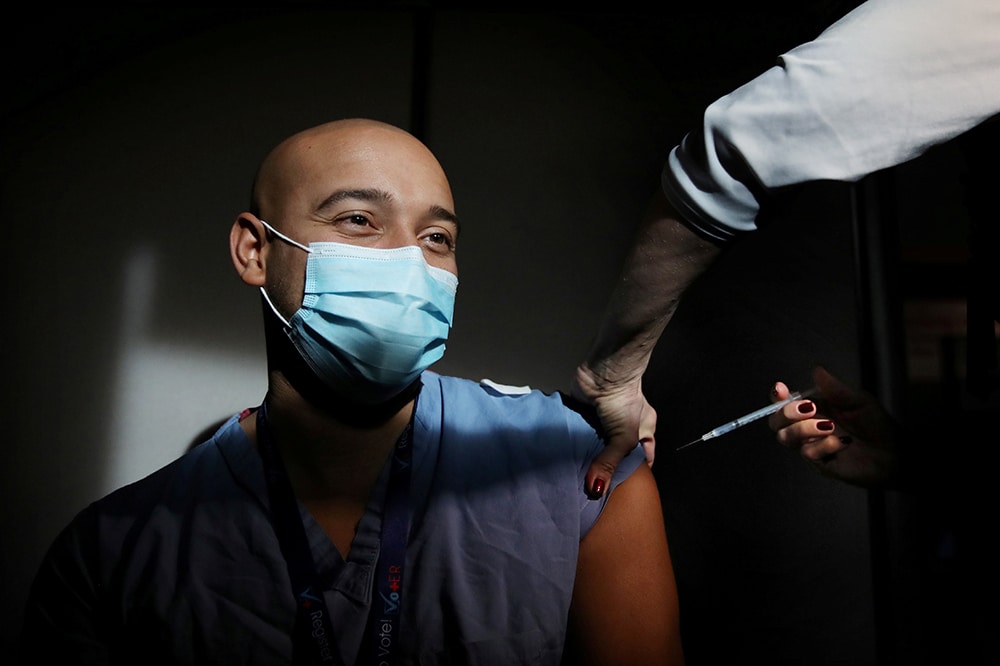WASHINGTON (CNS) — Maryland’s Catholic bishops are encouraging Catholics strongly to be vaccinated against COVID-19, “unless medically indicated otherwise.”
“A Catholic can in good conscience receive these COVID-19 vaccines,” they said in a joint letter, which echoed what most bishops around the country, the Vatican and leaders of the U.S. Conference of Catholic Bishops have said about use of the Pfizer-BioNTech and Moderna vaccines now being distributed.
“It is vitally important that the most vulnerable among us and those who are from communities that have been disproportionately impacted by COVID receive the vaccine swiftly,” the Maryland bishops said.
The bishops noted questions have been raised about the moral suitability of the vaccines, because they were developed or tested using cell lines originating from fetuses aborted in the 1970s.
They pointed to guidance from Vatican officials and USCCB leaders on the matter, all of whom have said while these vaccines have a connection to these fetal cell lines, this connection is remote and therefore it is morally acceptable to receive these COVID-19 vaccines,” especially because alternative vaccines are not available and the COVID-19 situation is grave.
However, “the licit use of such vaccines does not and should not in any way imply that there is a moral endorsement of the use of cell lines proceeding from aborted fetuses,” the Congregation for the Doctrine of the Faith said Dec. 21 in its most recent statement.
“Both pharmaceutical companies and governmental health agencies are therefore encouraged to produce, approve, distribute and offer ethically acceptable vaccines that do not create problems of conscience for either health care providers or the people to be vaccinated,” it added.
A week earlier, the chairmen of the U.S. bishops’ doctrine and pro-life committees likewise said the “gravity” of the ongoing COVID-19 pandemic and “the lack of availability of alternative vaccines,” are “sufficiently serious” reasons to accept use of the Pfizer and Moderna vaccines.
Both “made use of a tainted cell line for one of the confirmatory lab tests of their products. There is thus a connection, but it is relatively remote,” said Bishop Kevin C. Rhoades of Fort Wayne-South Bend, Indiana, chairman of the U.S. Conference of Catholic Bishops’ Committee on Doctrine, and Archbishop Joseph F. Naumann of Kansas City, Kansas, chairman of the USCCB’s Committee on Pro-Life Activities.
The prelates did, however, raise concerns about a third vaccine, which the FDA is expected to approve for distribution soon — one being made by AstraZeneca. They said they found the AstraZeneca vaccine to be “more morally compromised” and concluded this vaccine “should be avoided” if there are alternatives available.
“While having ourselves and our families immunized against COVID-19 with the new vaccines is morally permissible and can be an act of self-love and of charity toward others, we must not allow the gravely immoral nature of abortion to be obscured,” Bishop Rhoades and Archbishop Naumann said.
In Maryland, the bishops who signed the Dec. 12 letter included Washington Cardinal Wilton D. Gregory of Washington, whose archdiocese includes five Maryland counties surrounding the nation’s capital; Baltimore Archbishop William E. Lori of Baltimore; and Bishop W. Francis Malooly of Wilmington, Delaware, whose diocese covers Delaware and Maryland’s Eastern Shore. Maryland’s auxiliary bishops also signed the letter, release by the Maryland Catholic Conference, the bishops’ public policy arm.
At least one Catholic bishop, Bishop Joseph E. Strickland of Tyler Texas, urged Catholics “to reject any vaccine that uses the remains of aborted children in research, testing, development or production.”
“Testify to the truth that abortion must be rejected and make a choice that is consistent with the dignity of every human life from conception to natural death and is rooted in a mature faith and trust in eternal life, not fear of suffering in this life,” he said in a Dec. 8 letter to faithful in his diocese.
Bishop Strickland said instructions promulgated in the 2008 Vatican instruction “Dignitas Personae” (“The Dignity of a Person”) “say we have a duty to ask health care systems to do better.” He said that Catholic leaders “have not asked for better” in this time of COVID-19.
The Rhoades-Naumann letter said it was important to note the making of the COVID-19 vaccines, like the rubella vaccine before them, “does not involve cells taken directly from the body of an aborted child.” Cells taken from cell lines produced from two abortions in the 1960s “are stimulated to produce the chemicals necessary for the vaccine. It is not as if the making of the vaccine required ever more cells from ever more abortions.”
At the same time, the letter said, “we should be on guard so that the new COVID-19 vaccines do not desensitize us or weaken our determination to oppose the evil of abortion itself and the subsequent use of fetal cells in research.”
Colorado’s Catholic bishops Dec. 14 raised concerns about the moral suitability of the COVID-19 vaccines but echoed what other bishops said about use of the Pfizer and Moderna vaccines, saying they are “a morally valid option,” because “better options are not available” currently. “Considering the worldwide impact of COVID-19, vaccines for this virus seem to be especially necessary and urgent,” they said in a letter to the state’s Catholics.
“On the other hand, vaccines such as AstraZeneca-Oxford use aborted fetal lines in design, development, production and testing, and therefore are not a morally valid option because better options are available,” the bishops said, adding that “Catholics have the duty to use vaccines that respect human life, when they are available.”
The Colorado letter was signed by Denver Archbishop Samuel J. Aquila, Pueblo Bishop Stephen J. Berg, Colorado Springs Bishop Michael J. Sheridan and Denver Auxiliary Bishop Jorge Rodriguez.
In California, Bishop Joseph V. Brennan of Fresno issued a Dec. statement and pastoral letter about vaccines to clarify remarks he made Nov. 19. “We all want health for ourselves and for others. We want to promote that also … but never at the expense of the life of another,” he had said in the earlier remarks.
In his new statement, he emphasized Catholics have an obligation as citizens, patients, and doctors to urge their health care systems and governments to provide ethical vaccine alternatives that are not made with material derived from the moral evil of abortion.”
However, Bishop Brennan said, the Pfizer and Moderna vaccines only utilized illicit materials to a small extent in their testing phase, not in their development or composition. Without better alternatives and following serious reflection upon the health risks and needs for oneself, one’s family, and the broader community, Catholics may ethically decide for serious reasons to utilize such vaccines.
He strongly discourage Catholics from using the AstraZeneca vaccine, when it becomes available, “due to its development from a morally questionable cell line.”
The California Catholic Conference and the Washington State Catholic Conference issued similar statements Dec. 3 and 12, respectively, supporting the moral suitability of the available vaccines and committing themselves to working with Catholic health care organizations and their respective Catholic Charities agencies to:
— Promote and encourage COVID-19 vaccinations in collaboration with state and local governments and other entities.
— Advocate on behalf of vulnerable populations to ensure that they have access to safe and effective COVID-19 vaccines.
— Provide regular and accurate information to parishioners and the community in support of morally acceptable, safe and effective COVID-19 vaccines.
In Texas, Bishop Daniel E. Flores issued a pastoral letter on the vaccines Dec. 8. “Given the seriousness of the evil posed by the virus, and the common good protected by use of an effective vaccine,” he said, “the remote association to tainted cell lines during the testing regime does not constitute a sufficient reason to object to the moral permissibility of the vaccine.”
In the Midwest, the Catholic bishops of Iowa and Illinois likewise said use of the Pfizer and Moderna vaccines was morally acceptable to use to fight COVID-19.
“We thank the dedicated health care workers who have tended to and comforted those afflicted by the coronavirus, as well as their families,” the Illinois bishops’ statement also said. “We express our gratitude to the resourceful scientists who have produced vaccines in record time and offer encouragement to those pursuing additional remedies.”
Iowa’s bishops also noted that some have expressed concerns about the safety of the vaccine given the speed with which they were produced.
“Experts explain that the speed is a testimony to scientific advances that turned years into months without compromising safety and scientific integrity, they said.
– – –
Zimmermann is editor of the Catholic Standard, newspaper of the Archdiocese of Washington.

